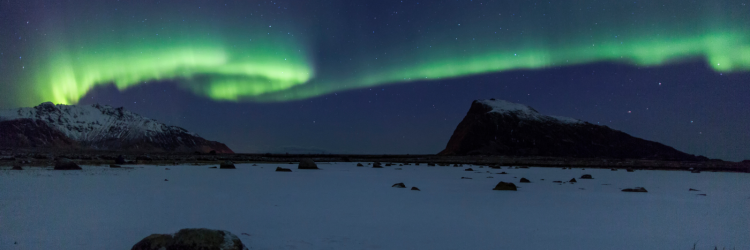In 1859, a massive solar storm fried the U.S.'s telegraph network. Even weeks later, when someone touched a piece of equipment, it still carried so much charge that he was thrown across the room.
Think of what such a storm would do today, when we've gone far beyond a baby network of telegraph systems. It would do trillions of dollars of damage to the electric grid that we rely on for our daily lives and to the internet, which we rely on for just about everything, including so much of our commerce.
And we're due.
Historical records show that an 1859-level storm happens once every 150 years, and it's been 165 years since the last one. In 2012, the sun emitted the sort of gigantic plasma cloud that it had in 1859, but it just missed us. If the storm had happened a week earlier, it would have scored a direct hit. And we're in the part of the 11-year solar cycle that is most likely to produce major storms; the peak part of the cycle will come next July. It already produced one severe storm, last December, that, fortunately, missed us.
The odds of a massive storm at any given time remain low. Just because a coin has come up heads six or seven times in a row doesn't mean it's more likely to come up tails next time. But the odds are still high enough that I think it behooves insurers to do two things.
First, they should review policies and make sure they're accurately pricing for a truly catastrophic event -- think, homes and businesses without power for years and business interruption for several quarters. They should also make sure that they're only covering the risks they intend to cover -- I'm thinking of the insurers that wrote general liability policies and were surprised to find in the early days of cyber attacks that the policies covered hacking.
Second, and even better, if the industry can do it, companies should work with clients to make sure they have backup plans to keep themselves and their businesses safe. They should also work with utilities, internet service providers and governments. Those entities are already aware of the possibilities of solar storms, but they don't necessarily understand all the downstream devastation that a major storm could cause -- and that's the sort of risk analysis that the insurance industry specializes in.
For the sort of detail I don't have room to provide here, I recommend two articles.
The first is one that we ran following the 2012 scare. It provides a great overview of the phenomenon, as well as considerable color about the effects of the 1859 storm, now known as a Carrington Event. It also suggests some approaches to scenario planning for such an event -- including the seemingly obvious, but often missed, observation that whatever replacement costs might run you now and whatever timelines you could meet now won't be close to what you'll face if a whole region or a whole country goes kerflooey at the same time.
The second is a recent piece published by our colleagues at the International Insurance Society. The article, by David Piesse, chief risk officer at Cymar, is far more detailed, including a list of major storms dating back to 660BC and a depressingly thorough analysis of all the equipment that would likely fail in a Carrington Event. Imagine having 10% of the world's satellites all fail at once -- and there's a chance they'd all fail.
Piesse concludes on a pessimistic note: "Warnings that the world needed to prepare for a pandemic were largely ignored, and threats from space weather in a technology-dependent world are only getting patchy attention."
I realize the odds are that we'll skate through this solar cycle, as we did the last one and the one before and.... But I also know that we'll have less than a day of warning between the time we see the sun emit a giant plasma cloud and the time it strikes Earth, so anything that's going to be done has to be done well in advance. And, as things now stand, we're just not ready. A Carrington Event would be catastrophic.
The old Eagle Scout in me keeps whispering in my head: Be Prepared.
Cheers,
Paul


